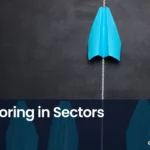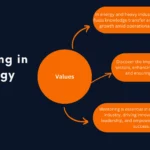
Introduction
Briefly introduce the topic of mentoring in the finance/banking sector 🪙
Mentoring in the finance/banking sector refers to a professional relationship between an experienced individual (the mentor) and a less experienced individual (the mentee) in the industry. The mentor provides guidance, support, and advice to the mentee. Also it helping them develop their skills, knowledge, and career in the field. Mentoring has become increasingly important in the finance/banking sector, as it offers numerous benefits for both the mentor and the mentee, as well as the organizations they work for.
Explain why mentoring is important in this industry ⚠
Mentoring is important in the finance/banking industry for several reasons.
Firstly, the industry is complex and fast-paced, with constantly changing regulations and market conditions. Having a mentor can help individuals navigate these challenges and stay up-to-date with industry trends and best practices.
Secondly, the finance/banking industry is highly competitive, and having a mentor can give individuals a competitive edge. Mentors can offer guidance on career development, help mentees identify and achieve their goals. Also this can help to provide feedback on performance, helping them improve and advance in their careers.
Thirdly, mentoring can help build a strong professional network. Mentors can introduce their mentees to other professionals in the industry and help them establish valuable connections.
Finally, mentoring is a valuable tool for knowledge transfer. As experienced professionals retire or leave the industry, it is important to have a system in place to ensure their knowledge and expertise is passed down to the next generation of professionals. Mentoring is an effective way to transfer knowledge and expertise from one generation to the next. Also thsi ensuring the sustainability of the industry.
Benefits of mentoring in the finance/banking sector
Discuss the advantages of having a mentor in the finance/banking sector, such as: 😀
There are several advantages of having a mentor in the finance/banking sector, including:
- Learning from someone with more experience
- Gaining insights into the industry
- Receiving guidance on career development
- Building a professional network
- Developing soft skills
Overall, having a mentor can help individuals in the finance/banking sector achieve their goals, develop their skills. Also this stuation can help advance their careers.
Types of mentoring in the finance/banking sector
Explain the different types of mentoring available in this industry, including: 🫵
There are several types of mentoring available in the finance/banking industry, including:
- Formal mentoring programs: These are structured programs that are typically set up by an organization or professional association. Formal mentoring programs usually have specific goals and objectives, and match mentors and mentees based on their skills and experience.
- Informal mentoring relationships: These are mentoring relationships that develop naturally between individuals in the industry. Informal mentoring can be less structured than formal programs, and may be initiated by either the mentor or the mentee.
- Peer-to-peer mentoring: This type of mentoring involves individuals at a similar level within the industry. Peer-to-peer mentoring can be particularly effective for developing specific skills or knowledge, such as learning a new software program or understanding a particular aspect of the industry.
- Reverse mentoring: This type of mentoring involves a less experienced individual (often a younger employee) mentoring an individual with more experience (often an older employee). Reverse mentoring can be particularly effective for developing skills related to technology or new market trends.
Hence, each type of mentoring has its own advantages and disadvantages, and individuals in the finance/banking industry may choose to participate in one or more types of mentoring, depending on their goals and needs.
Best practices for effective mentoring in the finance/banking sector
Provide tips and best practices for both mentors and mentees to make the most of their mentoring relationship, such as: 🤝🏻
Here are some tips and best practices for both mentors and mentees to make the most of their mentoring relationship in the finance/banking sector:
Mentors:
- Establish clear goals and objectives for the mentoring relationship and communicate them to the mentee.
- Listen actively to the mentee and provide constructive feedback and guidance.
- Share your experience and expertise in the industry and offer insights into career development.
- Encourage the mentee to set goals and develop a plan for achieving them.
- Be available and responsive to the mentee’s needs and questions.
Mentees:
- Be open to feedback and willing to learn from your mentor’s experience and expertise.
- Take ownership of your development and actively seek opportunities to grow and develop your skills.
- Set clear goals for yourself and communicate them to your mentor.
- Prepare for mentoring sessions by thinking about questions or topics you want to discuss.
- Be respectful of your mentor’s time and availability.
Both Mentors and Mentees:
- Establish a regular meeting schedule and stick to it.
- Be honest and open in your communication with each other.
- Maintain confidentiality and trust in the mentoring relationship.
- Celebrate achievements and milestones together.
- Evaluate the progress of the mentoring relationship regularly and make adjustments as needed.
Following these tips and best practices can help mentors and mentees establish a productive and fulfilling mentoring relationship that benefits both parties.
Examples of successful mentoring in the finance/banking sector
Give an example of successful mentoring relationships in the finance/banking industry 🧠
Here are a few examples:
- Warren Buffett and Benjamin Graham
- Jamie Dimon and Sandy Weill
- Mellody Hobson and George Lucas
- Richard Branson and Freddie Laker
- Mary Callahan Erdoes and Jamie Dimon
To clarify, these successful mentoring relationships demonstrate the importance of mentorship in the finance/banking sector, and the positive impact it can have on an individual’s career development and success.
Discuss how these mentoring relationships have helped mentees advance in their careers and achieve their goals 🕵🏻♂️
Here are some ways in which these mentoring relationships have had a positive impact:
- Warren Buffett and Benjamin Graham: Buffett credits Graham with teaching him the fundamentals of value investing. Also his approach to investing is heavily influenced by Graham’s teachings. This has allowed him to become one of the most successful investors of all time, and to build a highly successful career in the finance industry.
- Jamie Dimon and Sandy Weill: Weill mentored Dimon early in his career. Also taught him the importance of leadership and management skills. Dimon has gone on to become one of the most respected and successful CEOs in the finance industry, leading JPMorgan Chase to record profits and positioning the company as a leader in the banking sector.
- Mellody Hobson and George Lucas: Lucas mentored Hobson early in her career. Also taught her about the importance of storytelling in business. This has helped her become a highly successful businesswoman and leader in the finance industry, and to position Ariel Investments as a leading investment firm.
- Richard Branson and Freddie Laker: Branson credits Laker with teaching him about the importance of customer service and marketing. This has allowed him to build highly successful businesses in a variety of industries, including the finance industry.
- Mary Callahan Erdoes and Jamie Dimon: Erdoes has credited Jamie Dimon with teaching her about the importance of leadership and decision-making. This has allowed her to become a highly successful executive in the finance industry, and to position JPMorgan’s Asset & Wealth Management division as a leader in the industry.
To explain, by learning from experienced mentors, mentees are able to develop the skills and knowledge they need to succeed in their careers and to make a positive impact in the industry.
Conclusion
Sum up the importance of mentoring in the finance/banking sector
Mentoring is incredibly important in the finance/banking sector as it allows individuals to learn from experienced professionals and develop the skills and knowledge they need to succeed in their careers. Mentors can provide guidance, advice, and support to their mentees, helping them to overcome challenges, make informed decisions, and achieve their goals. By fostering a mentoring culture in the finance industry, organizations can help to build a more diverse and inclusive workforce, and to ensure that the next generation of finance professionals have the skills and knowledge they need to succeed.
Therefore, mentoring is a critical tool for driving career development, promoting industry innovation, and building a strong, sustainable finance sector for the future.
Encourage readers to consider finding a mentor or becoming a mentor themselves.
If you’re working in the finance/banking sector, I encourage you to consider finding a mentor or becoming a mentor yourself. A mentor can provide invaluable guidance and support as you navigate your career path. It can helping you to develop the skills and knowledge you need to succeed in the industry. And as a mentor, you can make a significant impact on the lives and careers of those you mentor, helping to build a strong, diverse, and inclusive finance sector for the future.
As a mentee, seeking out a mentor who has experience in your area of interest can help you gain a deeper understanding of the industry. Also, this can help to learn from someone who has been in your shoes. A mentor can provide you with valuable feedback. It can help you identify areas for improvement. Also it can provide guidance as you make important career decisions.
As a mentor, you have the opportunity to share your knowledge and experience with the next generation of finance professionals. You have the opportunity to help shape the future of the industry. Becoming a mentor can be a rewarding experience that allows you to give back to the industry and to help others achieve their career goals.
Hence, you’re looking for a mentor or considering becoming a mentor yourself. I encourage you to take the first step and explore the opportunities available to you. By investing in mentoring relationships, we can help to build a stronger, more innovative, and more inclusive finance/banking sector for the future.


